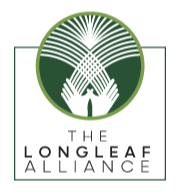Partners
Click the button on the right site to add an Organization. Include a logo plus 2-3 sentences on each major partner but don’t create new content if they are already in Landscape Partnership's Partner list. Organization must be tagged (Categorization tab) "Working Lands for Wildlife" to appear in this list.
Arkansas River Watershed Collaborative
The Arkansas River Watershed Collaborative (ARWC) grew out of the process of wildfire and its effects on water and communities. As fires in the Arkansas River Basin and across the state were becoming more intense and frequent, the need for organized community and agency partnerships to address impacts and preserve the health of our watersheds became clear and urgent.
Association for Fire Ecology
The Association for Fire Ecology is an organization of professionals dedicated to improving the knowledge and use of fire in land management through science and education.
Association of Fish and Wildlife Agencies
State, provincial, and territorial fish and wildlife agencies in North America have safeguarded fish and wildlife for over 100 years. The public entrusts these agencies with primary stewardship over vital wildlife resources. The Association of Fish and Wildlife Agencies lends collective voice to its agencies in fulfillment of that responsibility.
Audubon Pennsylvania
With a century of conservation history in Pennsylvania, Audubon strives to conserve and restore the habitats we share with all wildlife, focusing on the needs of birds.
Bird Conservancy of the Rockies
Mission: conserving birds and their habitats through science, education and land stewardship.
Bitterroot Conservation District
The Bitterroot Conservation District is a board of seven locally elected officials that deal with the natural resource concerns of Ravalli County, Montana.
Black Duck Joint Venture
The Black Duck Joint Venture is a North American Waterfowl Management Plan Conservation Partnership
Black Family Land Trust
The Black Family Land Trust, Inc. (BFLT) incorporated in 2004 and based in North Carolina, is one of the nation’s only conservation land trust dedicated to the preservation and protection of African-American and other historically underserved landowners assets.
Black Urban Growers (BUGs)
Black Urban Growers (BUGs) is committed to building networks and community support for growers in both urban and rural settings. Through education and advocacy around food and farm issues, we nurture collective Black leadership to support Black agrarianism and reimagine Black futures. Based in New York City, BUGs reach is national through its annual conference.
Blue Forest Conservation
Blue Forest is a mission-driven, non-profit organization creating sustainable financial solutions to meet pressing environmental challenges. Our flagship financial product, the Forest Resilience Bond (FRB), deploys private capital to finance forest restoration projects on private and public lands to reduce the risk of catastrophic wildfire.
Blue Ridge Resource Conservation and Development
Blue Ridge RC&D works with partners to conserve natural resources, foster environmental stewardship, and support sustainable community development in northwest North Carolina.
Bureau of Land Management (BLM)
The Bureau of Land Management's mission is to sustain the health, diversity, and productivity of public lands for the use and enjoyment of present and future generations. he BLM was established in 1946, but its roots go back to the years after America’s independence, when the young nation began acquiring additional lands. At first, these lands were used to encourage homesteading and westward migration. The General Land Office was created in 1812 to support this national goal. Over time, values and attitudes regarding public lands shifted, and President Harry S. Truman, by means of a government reorganization, merged the GLO and another agency, the U.S. Grazing Service, creating the BLM.
Canaan Valley Institute (CVI)
Canaan Valley Institute (CVI) is driven by a mission to ensure the Appalachian region has healthy streams — a critical economic engine for rural communities. CVI’s approach for clean and healthy rivers creates positive results environmentally AND economically.
Center for Heirs' Property Preservation
The Center for Heirs’ Property Preservation is a 501(c)(3) non-profit that protects heirs’ property and promotes its sustainable use to provide increased economic benefit to historically under-served families.
Center for Native Grasslands Management
The Center for Native Grasslands Management provides a scientific background to producers and land managers, enabling them to effectively establish and manage native grasslands. The Center’s second major focus is to make findings from our research widely available throughout the eastern United States. We work through Extension and partner organizations to share these results with producers, land management agencies, other researchers, and wildlife conservation organizations through publications, workshops, trainings, and field days.
Clemson College of Agriculture, Forestry and Life Sciences
The College of Agriculture, Forestry and Life Sciences (CAFLS) embodies founder Thomas Green Clemson’s vision of a “high seminary of learning” focused on improving the lives of South Carolinians through education, discovery, and outreach in the agricultural and life sciences
Coalition of Prescribed Fire Councils
The overarching goal of the Coalition is to create one voice to assist fire practitioners, policymakers, regulators, and citizens with issues surrounding prescribed fire use.
Colorado State Forest Service
The mission of the Colorado State Forest Service is to achieve stewardship of Colorado’s diverse forest environments for the benefit of present and future generations. We are a service and outreach agency of the Warner College of Natural Resources at Colorado State University.
Commission for Environmental Cooperation (CEC)
In the context of environmental, economic and social linkages between Canada, Mexico and the United States, the CEC facilitates effective cooperation and public participation to conserve, protect and enhance the North American environment in support of sustainable development for the benefit of present and future generations.
Confederated Salish & Kootenai Tribes
The Flathead Indian Reservation is home to three tribes, the Bitterroot Salish, Upper Pend d’Oreille, and the Kootenai. The territories of these three tribes covered all of western Montana and extended into parts of Idaho, British Columbia and Wyoming. The Hellgate Treaty of 1855 established the Flathead Reservation, but over half a million acres passed out of Tribal ownership during land allotment that began in 1904.

























